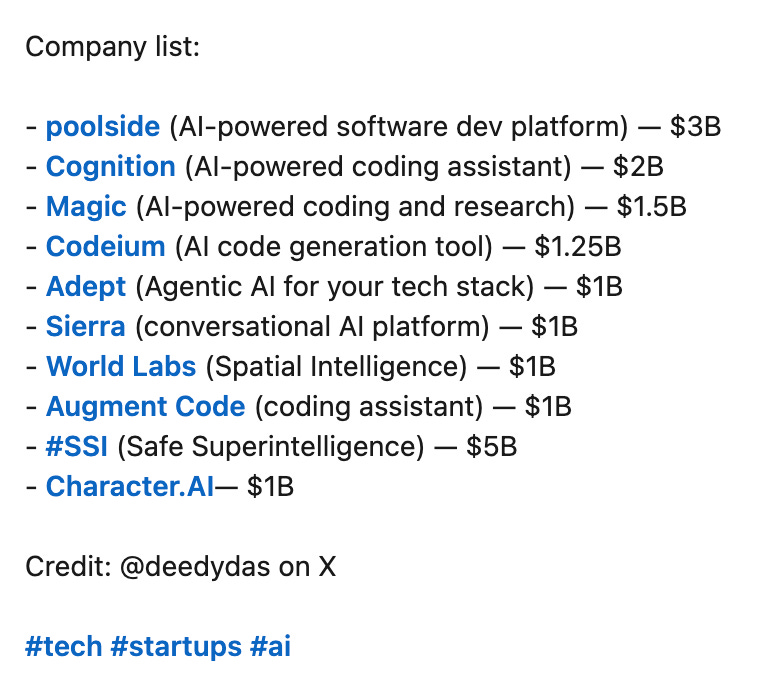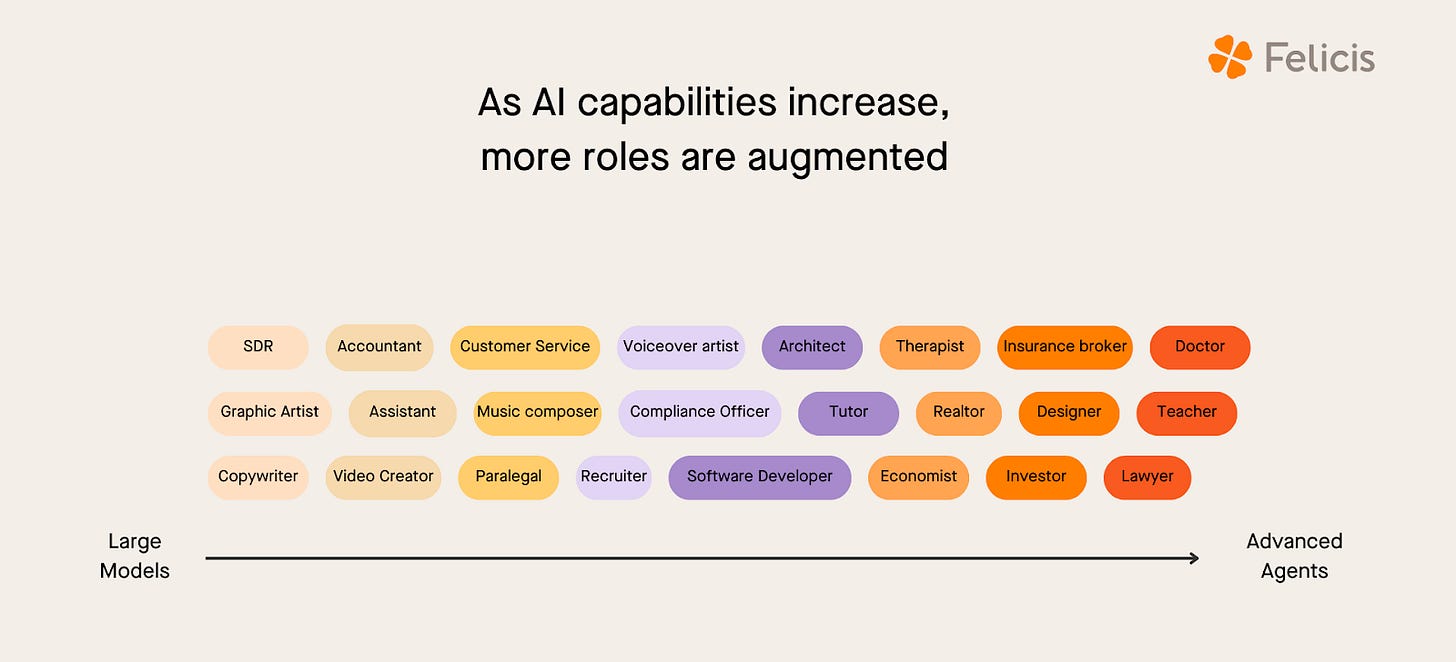🌊 Agentic Revolution
👋 Hello! I’m Ivan. I write about how top 1% startups raise and grow.
Summary
🌊 Agentic Revolution: hype, reality, and what’s coming.
🌊 Pitch Deck GPT: to wrap or not to wrap.
🌊 The reality of PMF: Zuck and Levelsio.
🌊 EU-Inc: help shape the future of EU startups.
💵 Iberian Deals: 21 deals in Spain (>€178M).
🍫 Meme of the month: Amazon remote work.
Want to sponsor Startup Riders? Fill out this form.
This newsletter is proudly sponsored by Yellow Birds Creative.
Creating organic content for your socials is tough. It's even tougher to do so in a way that accurately reflects your brand identity. We offer three packages:
Content creation: photography, video, video podcasting, copywriting.
Social Media Management: taking care of all your content creation needs.
Project Management: ideate, plan, and manage your marketing initiatives.
🌊 Agentic Revolution
“We’re at the beginning of a new Industrial Revolution. But instead of generating electricity, we’re generating intelligence… [Open source] activated every single company. Made it possible for every company to be an AI company.”
— Jensen Huang
We might be approaching a “ChatGPT moment” for AI agents.
It seems like humans might have figured out how to scale intelligence.
There’s a lot of noise out there.
So here’s are a few key insights and frameworks from the best resources I’ve found to help you wrap your head around this emerging tech wave:
1. AI Agents are probably simultaneously over and under-hyped
"I think the AI boom will rhyme with the dot-com bubble."
I think we are in a bubble, but bubbles have different shapes. I think the AI bubble will rhyme with the dot.com bubble. Most of the excess of the dot.com bubble might have been justified. If you look at the top market cap companies in the world, they include Amazon, Google, Paypal, eBay, Salesforce. All of these were started in the dot.com bubble. There are areas of excess today, but it would be dangerous to dismiss this as strictly excess, and there’ll probably be outsized returns within it.
- Brett Taylor
Here’s a snapshot of AI-first (?) companies revenue Vs valuation, you get the picture:
Combined valuation of >$17B
Combined revenue <$100M
2. The rise of the “Agentic Economy” is a potentially (very) big deal
Every major platform generational shift has prompted the rise of a new type of economy. Every time, they have given rise to huge, established tech players.
The same players that you have probably been reading about lately, about how they are scrambling to leapfrog to the next rising economy.
Here are a few examples you’ve all experienced first-hand:
Public Cloud enabled the SaaS economy
The iPhone enabled the App economy
Social media enabled the Creator economy
LLMs gives rise to the Agentic economy
And here’s why it is potentially very exciting:
AI agents are changing traditional software – Instead of the usual click-around menus, separate data, and pay-per-user model, AI agents do things differently.
AI agents reduce the need for human labor – Companies spend a lot more on workers than on software (35x+). AI agents can help cover both areas, potentially saving on labor costs.
AI agents make services more efficient – In industries where work is done by people and profit margins are low, AI agents can boost productivity and reduce costs.
3. There are 3 types of emerging AI Agents: Personal, Role-Based, and Company-Focused
“Autonomous agents are programs, powered by AI, that when given an objective are able to create tasks for themselves, complete tasks, create new tasks, reprioritize their task list, complete the new top task, and loop until their objective is reached.”
—Matt Schlicht
Agents have the potential to be so useful that you might see them everywhere soon:
4. The way AI Agents are built challenges traditional software development practices
A new kind of software demands a new approach to development.
- Clay Bavor
As AI agents replace traditional rule-based software, they challenge established development practices by introducing unpredictability, high costs, and unique upgrade issues.
Adapting to this shift requires new strategies for reliability and future-proofing.
Digital Shift: Software development has evolved with structured best practices (SDLC) for reliability.
AI Agents Challenge SDLC: Unlike traditional software, AI agents use flexible, goal-based models, creating unpredictable results.
Input Differences: Structured input (forms) vs. natural language, leading to infinite interaction possibilities in agents.
Performance & Cost: Traditional software is fast and low-cost; agents rely on slower, more expensive LLMs.
Upgrade Instability: Traditional updates are smooth; LLM updates can disrupt agents, requiring re-training.
New Paradigm: Moving from deterministic, affordable software to adaptive, costly AI agents poses new reliability challenges.
5. Commercially, the AI market might play out like the cloud market
What learnings could we derive from how the cloud market played out, that might “rhyme” with what is currently going on in AI?
Well, 3 big categories emerged:








